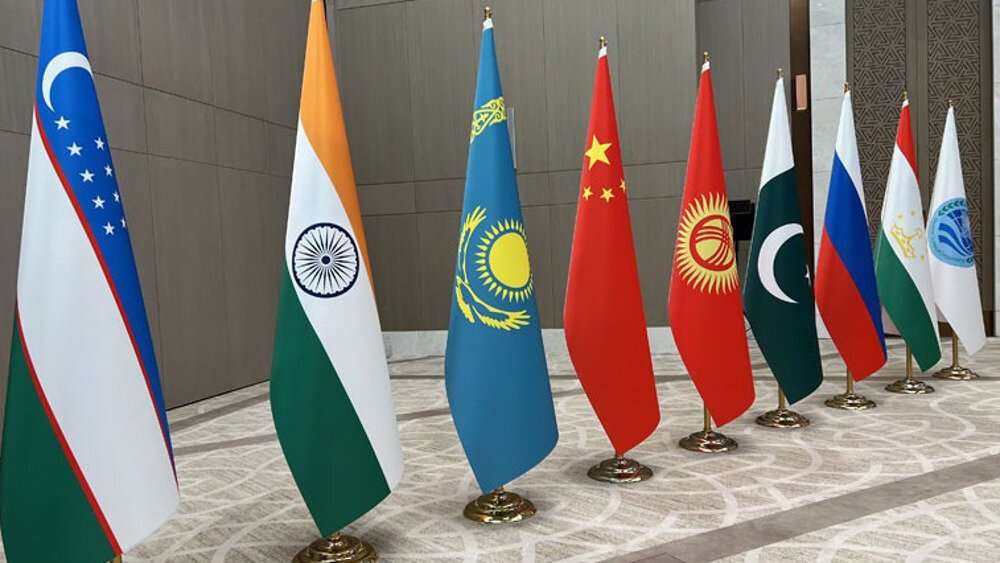
The SCO Summit was held recently in India, the chair country of the eight-nation Shanghai Cooperation Organization. The event was presented on video on July 4 in New Delhi, India.
The continuous expansion of SCO amid a turbulent global situation is bound to generate numerous unpredictable challenges, but this will not hinder the momentum of its development. Like other successful international mechanisms, it seeks development despite challenges.
Flexible, pragmatic consensus
Since the organization was created, SCO member states have been following the principle of consensus in their deliberations, which is the embodiment of the Shanghai Spirit in multilateral cooperation. The merit of the principle lies in the equality it provides for all member states, regardless of their national strength. However, with the sustaining development of the regional organization, this principle has brought many issues, a prominent one being the group’s gradual “forumization.” Things that were agreed upon seem to go unimplemented for long periods.
For instance, in 2009, soon after its establishment, SCO members have begun to promote financial cooperation and started negotiations on the establishment of a development bank and a special account. No consensus on these things has been reached so far, however. The phenomenon of “deliberation without decision” can be classified as a case of long-term consultation rarely seen even in the history of international organizations. For this reason, the member states expanded the statement of principle to say “flexible and pragmatic consensus,” thus achieving a breakthrough.
At the Ufa summit in July 2015, the heads of the SCO member states adopted a resolution that started procedures to admit India and Pakistan. Then, at the Qingdao Summit in July 2016, China — the chair at the time — came to terms with the fact that India was the only member state that refused to endorse its Belt and Road Initiative in the Qingdao Declaration issued at the end of the two-day summit. In doing so, China actually upheld the Shanghai Spirit.
Improving effectiveness
Compared with the 44 documents adopted at the Samarkand Summit in September last year, only 14 were adopted at the New Delhi Summit, including the New Delhi Declaration; the Statement on Countering Radicalization Leading to Terrorism, Separatism and Extremism; the Statement on Cooperation in Digital Transformation; and resolutions to carry out work in a number of realms. The moderate number does not reflect a lack of cooperation incentives among the member states, but rather indicates their focus on results-oriented cooperation.
After New Delhi, the organization’s Secretary-General Zhang Ming proposed concentrating on goals in six aspects, including
• to observe and expand the unique and proven core SCO principles
• to rigorously deepen security cooperation;
• to promote institutional arrangements for trade and economic cooperation;
• to strengthen cooperation in humanitarian areas and promote cooperation in water resource protection and water saving technology;
• to consistently promote the accession of new members and strengthen and expand cooperation with international and regional organizations; and
• to accelerate the modernization of the executive mechanisms.
To attain satisfactory outcomes in these areas, the member states need to make improving the effectiveness of cooperation and exploring and optimizing cooperation their primary goals.
War fosters risk avoidance
Because of the current international environment and state centrism, it isn’t all smooth sailing for multilateral cooperation these days. In the New Delhi Declaration, the heads of the member states reached consensus on 38 items, far fewer than the 116 reached in Samarkand.
A significant contributor to this decline is the international environment in which the spillover effects of war has spread to SCO members. As the Russia-Ukraine war dragged on, the European Union imposed 11 rounds of sanctions on Russia. Notably, the final package of sanctions restricts Russia's ability to circumvent existing sanctions, consequently making some member states more risk-averse in cooperation.
At the 2023 summit, Russian President Vladimir Putin said that while his country was under the influence of a hybrid war and confronted with sanctions on an unprecedented scale, Russia was confident in its ability to resist external pressure, sanctions and provocations and deepen its relations with other member states.
The enduring vitality of international cooperation is guaranteed by the benefits it generates. For China, building a community with a shared future within the SCO bloc is a long-term goal and an important part of its efforts to achieve national modernization in its own way. At the 2023 summit, Chinese leaders stressed their commitment to providing opportunities under Chinese-style modernization for all countries of the world, including SCO members.
Meanwhile, China is boosting the implementation of the BRI and China-Central Asia Mechanism. It promises to turn these two mechanisms, together with the SCO, into major platforms to deliver the benefits of cooperation. One of the lessons that can gleaned from China’s development is that in today’s world a country can achieve its major political or economic goals only through peaceful development rather than war.
